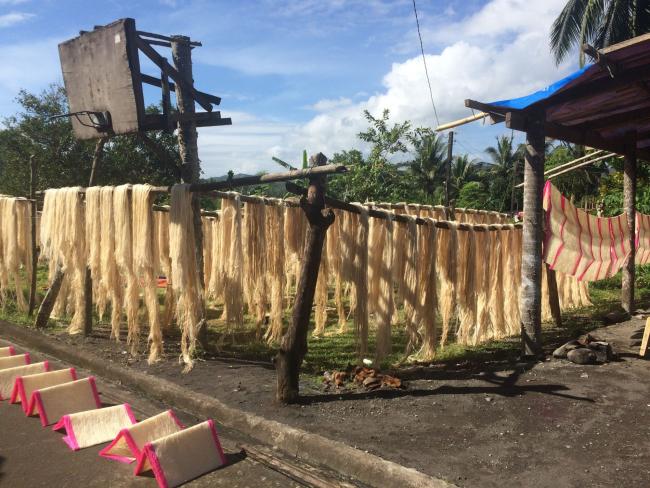(Bloomberg) -- Fiber from a relative of the banana tree could replace plastic in millions of face masks and hospital gowns the world is making to fight the coronavirus.
Abaca -- a fiber from the Philippines used in teabags and banknotes -- is as durable as polyester but will decompose within two months, said Philippine fiber agency head Kennedy Costales. “With this pandemic, if we all buy masks made of synthetic fiber, they will pile up in dumpsites because they take so long to decompose,” he said.
Global efforts to ban single-use plastics have retreated as nations prioritized hygiene over the environment for packaging and medical supplies, creating a bright spot for chemical companies such as LyondellBasell Industries NV (NYSE:LYB) and Trinseo (NYSE:TSE) SA. Sales of disposable face masks are set to rise more than 200-fold worldwide this year to $166 billion, according to a United Nations trade article, citing consultancy Grand View Research.
Companies have been reluctant to replace plastic with biodegradable alternatives because of concern about cost and whether the new materials are sufficiently strong and effective for medical use.
A preliminary study by the Philippine Department of Science and Technology showed abaca paper to be more water resistant than a commercial N-95 mask, and to have pore sizes within the U.S. Centers for Disease Control and Prevention’s recommended range to filter hazardous particles.
Costales said abaca demand could grow “exponentially” this year, with 10% of production going to medical uses, compared with less than 1% in 2019.
“Abaca fiber is rapidly gaining popularity as governments and manufacturers all around the world scamper to produce more reusable and safe medical garments for healthcare professionals,” said Pratik Gurnani, senior consultant at Future Market Insights.
In Demand
The Philippines is the world’s largest producer, supplying 85% of the fiber in 2017, according to the latest data from the United Nations Food and Agriculture Organization. Global production is projected to be worth $100 million this year, Gurnani said.
The fiber, stripped from the trunks of the abaca tree, was used for saltwater-resistant ship ropes and Manila envelopes in the 19th century. Up to 30% of Japan’s banknotes are made of it and abaca yarn has been used in Mercedes-Benz cars.
Even though the plant fiber is more expensive to produce than plastic alternatives, manufacturers of protective health gear from China, India and Vietnam have placed new orders for the fiber over the past months, prompting Philippine fiber factories to double their output, said abaca exporter Firat Kabasakalli.
“People see this pandemic lasting for some time, so even small companies are trying to make protective equipment, which require our fiber,” said Kabasakalli, general manager of Dragon Vision Trading. “We are getting a lot of inquiries from new clients abroad.”
Missed Opportunity
One company in southern Philippines which makes greeting cards and paper from the fiber for export to the U.S. and Europe has shifted to making masks.
“The awareness of consumers now is higher when it comes to taking care of the environment,” said Neil Francis Rafisura, general manager of Salay Handmade Products Industries Inc. “There are people who will pay a premium for environmentally friendly products.”
Abaca production can’t keep up with demand, according to Costales. While he estimates growers will increase output to 74,000 metric tons this year, that’s not enough to meet even last year’s supply deficit of about 125,000 tons, he said. Part of the reason is that farmers in the Philippines lack government subsidies to raise output.
“Abaca is like precious gold for the Philippines, but it’s been often overlooked because the government prioritizes crops that feed people,“ Costales said. “This is a missed opportunity for us.“
©2020 Bloomberg L.P.

